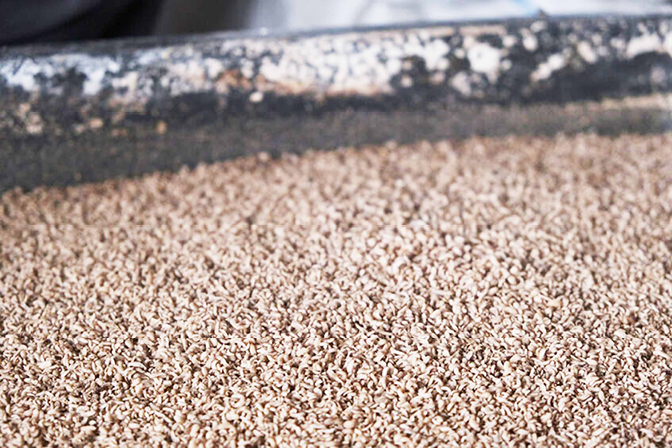Dutch scientists have researched the suitability of poultry manure as a nutrient medium for breeding insects
Although Europe legislation has for many years barred the use of animal protein in feed due to BSE, insects have recently been made an exception – unless they are grown on manure.
Leo Beukeboom, professor of evolutionary genetics at the University of Groningen, said the project wanted to address 2 challenges at the same time:
- The Development of cheaper and more sustainable ways to produce proteins.
- Tackling the surplus of manure.
- Stakeholders meet over Nigeria’s $3.5bn sunflower potential
- Kano poultry farmers, traders groan over excess heat, low patronage
Beukeboom said insects are a high-quality source of protein for humans and animals, and breeding insects requires much less water and space compared to conventional livestock farming: “Another advantage is that this approach reduces our dependence on protein sources from abroad, while making efficient use of the nitrogen in the manure of our livestock and poultry. In other words, we kill several birds with one stone. Moreover, using a waste stream to produce protein is an ultimate form of circularity.”
The nutritional value of the manure for larvae
In the project, Beukeboom and colleagues from Vrije University in Amsterdam and Wageningen University and Research, collaborated with a company to experiment with growing fly larvae on manure.
Wageningen colleagues investigated the nutritional value of the manure for larvae. They discovered that the larvae grew better if you enrich the manure with around 15 percent starch, said Beukeboom. Temperature was also an important factor: “We experimented with different temperatures and 32°C turned out to be optimal.”
Vrije University colleagues discovered that you could improve the genetics of the flies through selective breeding, so that flies can grow better on extra sugar or fat, which will allow geneticists to develop breeding lines that perform better on certain substrates.
Breeding more females
“In Groningen, we experimented with ways to breed more females, relative to males. This provides an economic advantage because only females lay eggs. This was also successful. All of this show that there is still a world to discover, and that production can be optimised even further.”
The researchers hope that this type of research contribution could help change legislation allowing insects to be reared on manure.
Source: Poultry World

 Join Daily Trust WhatsApp Community For Quick Access To News and Happenings Around You.
Join Daily Trust WhatsApp Community For Quick Access To News and Happenings Around You.


